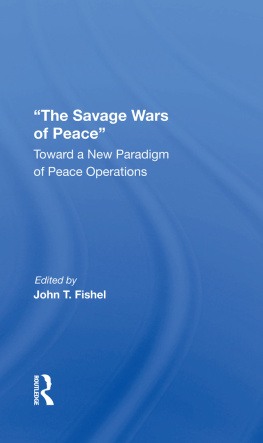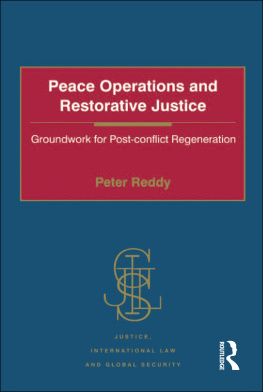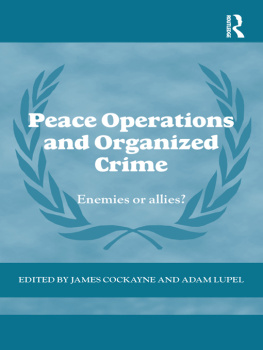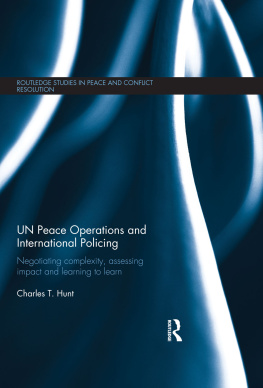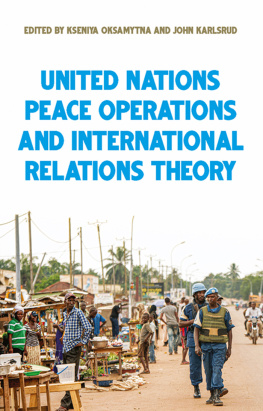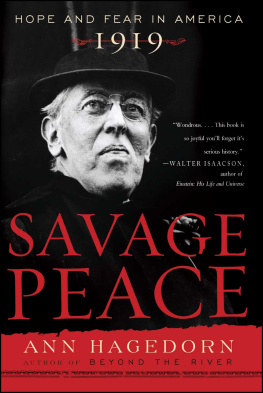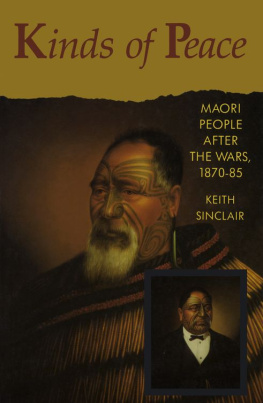"The Savage Wars of Peace"
"The Savage Wars of Peace"
Toward a New Paradigm of Peace Operations
Edited by
John T. Fishel
First published 1998 by Westview Press, Inc.
Published 2019 by Routledge
52 Vanderbilt Avenue, New York, NY 10017
2 Park Square, Milton Park, Abingdon, Oxon OX14 4RN
Routledge is an imprint of the Taylor & Francis Group, an informa business
Copyright 1998 Taylor & Francis
All rights reserved. No part of this book may be reprinted or reproduced or utilised in any form or by any electronic, mechanical, or other means, now known or hereafter invented, including photocopying and recording, or in any information storage or retrieval system, without permission in writing from the publishers.
Notice:
Product or corporate names may be trademarks or registered trademarks, and are used only for identification and explanation without intent to infringe.
A CIP catalog record for this book is available from the Library of Congress.
ISBN 13:978-0-367-29569-1 (hbk)
Contents
, John T. Fishel
, Murray J.M. Swan
, Kimbra L. Fishel and Edwin G. Corr
, Stephen C. Fee
, J. Matthew Vaccaro
, Joseph G.D. Babb and George W. Steuber
, John A. MacInnis
, Lawrence A. Yates
, Thomas J. Daze and John T. Fishel
, Thomas K. Adams
, Max G. Manwaring And Kimbra L. Fishel
, David M. Last
Guide
"The savage wars of peace--
Fill full the mouth of Famine
And bid the sickness cease...
The ports ye shall not enter,
The roads ye shall not tread,
Go make them with your living,
And mark them with your dead!"
The words above, quoted from Rudyard Kipling's politically incorrect (for the 1990s) poem, "The White Man's Burden," describe far better than any modern writing, the challenge of post Cold War peace operations. When I reread the entire poem a couple of years ago, I was impressed with how well the "poet of imperialism" had captured both the challenges of this world as well as his own but also the character of the then newly emerging American world power. Today, almost a century later, the United States still has not come to terms with its super power status--as the chapters in this book attest.
Our purpose in the book, however, is not to castigate the Americans or any other national participant in modern peace operations. Rather, it is to apply theory developed from social science research to military doctrine and test it against specific cases of peace operations. These operations ran the gamut from situations that developed in the 1960s, at the height of the Cold War, to the present. We have divided our nine cases into "traditional peacekeeping", "wider peacekeeping", and "peace enforcement" categories. Yet, having done so, we found that in retrospect the categories are quite arbitrary. The commonalties run through all the cases. And they are all unique. Nevertheless, our model informs them all and suggests that such fine distinctions are not necessary or even truly helpful.
The authors of this book are a varied group. They range from established scholars and practitioners to very junior scholars and practitioners. Without exception they have some experience in the real world of security; without exception they have some experience in the academic world. In most cases the authors are in some way affiliated with the US Army Command & General Staff College at Fort Leavenworth, Kansas. This institution, which has been called the "crossroads of the US Army" is really much more. It is the crossroads of the armies of the world (and to a lesser extent, the navies and air forces as well). More important, it is the intellectual heart of the American army and the premier military masters degree granting institution in the world. It is here that many of the authors teach or were educated. And its influence is felt by all of us. And so the book is for its students and graduates among others. Those others include all the civilian governmental and non-governmental agencies that are involved in the "savage wars of peace." Our hope is that the book is useful to them and the soldiers alike.
A last necessary word in this preface, since many o us are either civilian employees of the US government, or serving members of the US and Canadian armies, or retired from one or the other of these categories, and that is: The views expressed in this book are those of the authors and do not necessarily reflect the official policy or position of the Department of the Army, Department of Defense, Department of State, the US government, the Canadian Department of National Defence, the Canadian government, or any intergovernmental organization.
John T. Fishel, PhD
A book like this is the product of many minds, hands and computers and so the editor must proffer his thanks to ail of them. First and foremost, without the efforts of the person who did all of the technical editing, none of the work of the authors or the editor would have seen the light of day. All of the technical editing was done by one of the co-authors of the book, my wife, Kimbra L. Fishel. What she did was a labor of love for the project as well as her husband. All of us thank you, Kim, for making our scribblings look professional!
To the authors: I thank each of you for the hard work, solid research, the following of format (even when you were sure you had a better way), and meeting the last--if not the first--deadline. Your expertise makes the book what it is. You are all professionals.
Thanks also to my aunt, Ruth Roman, who reviewed several chapters and suggested improvements in the writing. Thanks to the US Army Command & General Staff College for assembling the group of professionals who form the core of the authors and for the environment which encouraged this kind of effort. Thanks to Max Manwaring whose original research produced the theory that is articulated here as the "Manwaring Paradigm." Finally, thank you to the late General Maxwell R. Thurman whose question started it all.
JTF
1
War By Other Means? The Paradigm and its Application to Peace Operations
John T. Fishel
Dag Hammarskjoid, the late Secretary General of the United Nations, is said to have remarked that peacekeeping is not a soldier's job, yet only a soldier can do it. If he was correct and this book is premised on the assumption that he was then it is equally necessary for the soldier and the statesman to understand the principles on which peace operations are based and the ways in which they are applied. These "ways"are what the military calls doctrine. This chapter elaborates the relationship between principles and doctrine as well as how these principles were derived from the research that produced what we are calling the "new paradigm of peace operations."
The "new paradigm of peace operations" is hardly new in the sense that this is the first time it has ever been seen. Rather, our paradigm-known elsewhere as the SWORD Model and the Manwaring Paradigm-is new in its application to peace operations. Moreover, in its initial development the model was not confined only to insurgencies.
Development of the Model
In 1984, General Maxwell R. Thurman was Vice Chief of Staff of the United States Army. Thurman, a veteran of the Vietnam War, saw in the US involvement in the ongoing insurgency in El Salvador a strategic and doctrinal problem that begged for resolution if the US Army was to avoid a quagmire in Central America as divisive as Vietnam had been. So General Thurman queried the Strategic Studies Institute of the Army War College in Carlisle Pennsylvania as to the "correlates of success in counterinsurgency." Of all the analysts at the Institute, only the newly arrived Max Manwaring had the particular political science research training to undertake the kind of quantitative study that could answer the General's question. Thus it fell to Manwaring to conduct the study.


